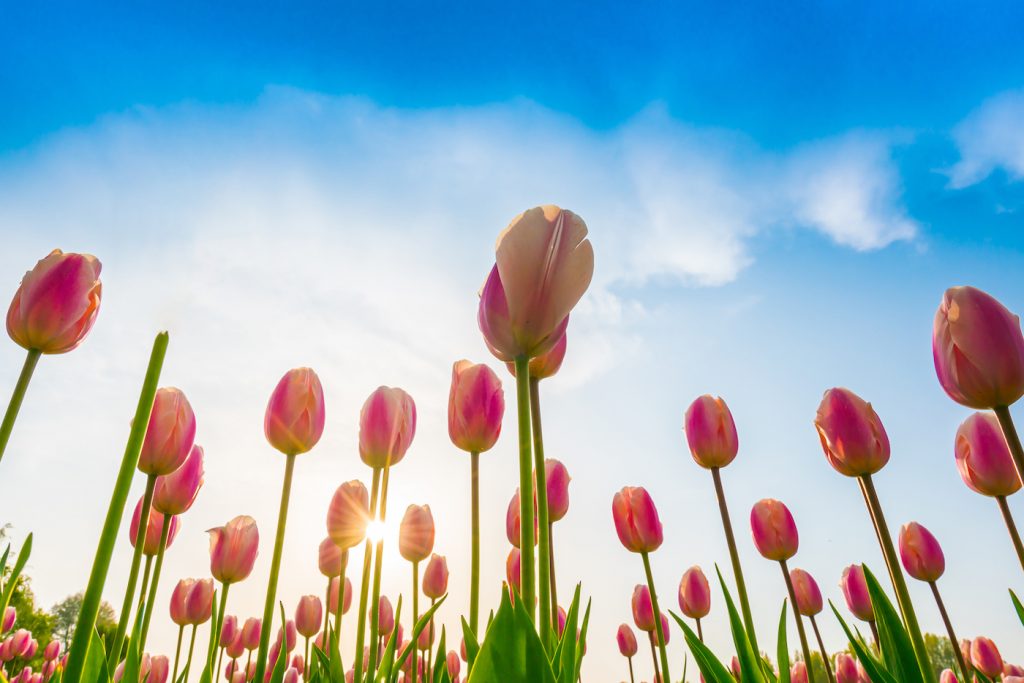
Bulb grower Schutte and VAM realise lower bacterial load and zero discharge
After harvesting, viruses, fungi and pesticides need to be rinsed from flower bulbs. However, several restrictions apply to this. For example, it is forbidden to discharge used water or pesticide traces into the surface water. However, higher than permitted pesticide levels are mainly measured in areas with flower nurseries, bulb growers, greenhouse horticulture and open soil vegetable growing.
According to the EU Water Framework Directive, these levels must be reduced to zero within four years. Stricter guidelines for discharges and the ‘stacking’ of pesticides are also being introduced. Regulatory authorities are working towards ‘zero discharge’: a closed water cycle without waste water emissions.
Arable flower bulb grower W. and J. Schutte, based in Nagele, the Netherlands, grow some 170 hectares of crops, including tulips, lilies and gladioli. The company started a unique project named ‘Duurzame Waterkwaliteit’ – ‘Sustainable Water Quality’. The ambitious goal: not a single drop from the surrounding fields was allowed to end up in the waterways and on the land where bulbs grow, to prevent the spread of unwanted substances. In addition to reducing fungi and viruses in the rinsing water, the goal was also to remove traces of crop protection products from the water
Reuse of washing water plays an important role in W. and J. Schutte’s solution. Trenches surrounding the land lead water to a central point, from where it is transported to a rinsing basin. A fully automated system from VAM WaterTech purifies the process water.
This system first removes bulb skins, root remains, and remaining fine sand and other floating particles from the water. The subsequent disinfection step removes germs, viruses, fungi and pesticide residues.
This approach reduces disease pressure, which in turn allows less use of plant protection products and allows water to be used in more different ways, in the rinsing process and on site. Water intake is also minimised.
Water can be reused in the rinsing process, by the field sprayer, or used to hose down machinery. “Flower bulbs are dug up together with a relatively large amount of soil, which requires a lot of rinsing water,” says grower Jeroen Schutte. “If we can ensure that water is free from fungi and viruses, fewer crop protection agents are needed. This helps us to keep the quality of the products high and to meet various environmental standards. Even if a new form of contamination emerges in the future, good hygiene practices will protect us from it.”
“We received an agricultural subsidy for this project – the provider soon realized that this was a solid, feasible idea. With our new approach, we can make improvements at several places throughout the entire process. Cleansing rinsing water of pesticides, fungi and viruses means we require fewer crop protection agents, and that the environment is less taxed and our yield improves.”
“We were immediately convinced by VAM’s solution. We also understood we would be doing business with a solid company that applied knowledge of water treatment to the solutions they provide, across several areas, including agriculture, and now also the flower bulb sector.”
Never before has water in this sector been so extensively treated on this scale. “Environmentally friendly production is a hot topic in the world of agriculture. We are demonstrating that we are working on sustainability in a concrete and proactive manner. Taking a leading position in this area is good for our production and reputation, as well as for the image of our sector. I am proud that we are contributing to reducing pollution in this way. Our Sustainable Water Quality project focuses on a zero discharge, and I am proud that we have ultimately succeeded, with the help of VAM WaterTech.”
Get in touch with VAM for more information or to discuss your own requirements!
Hans Blaak
phone: +31 (0) 113 – 65 58 80
email: hb@vam-watertech.com
or use our contact form.
